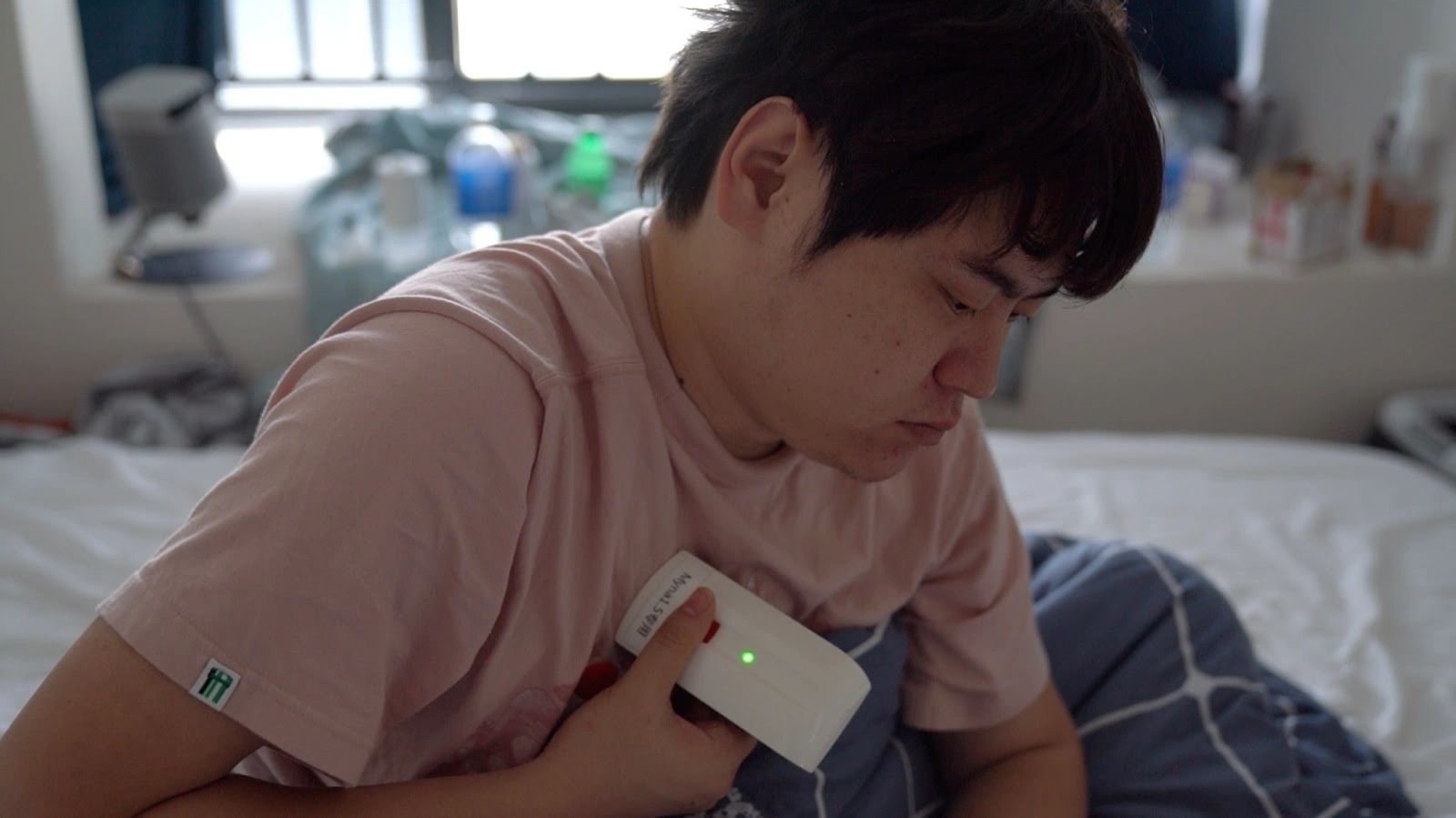Mind matters: China’s provocative push into brain-computer inte…

A representative image of an artificial intelligence brain microprocessor. ktsimage/ iStock
China is making significant strides in brain-computer interface (BCI) technology, putting its ambition to lead globally to fruition and rapid advancement.
This cutting-edge technology, which allows direct communication between the brain and external devices, is being explored for several applications, from medical treatments to enhanced cognitive abilities.
According to the Outline of the 14th Five-Year Plan (2021–2025), China aims to foster innovation in brain-like intelligence and other cutting-edge technologies. The plan includes strategies for incubating and accelerating the development of future industries and establishing a comprehensive framework to support these emerging sectors.
Recent progress
At the recent Zhongguancun Forum in Beijing, China unveiled an advanced BCI system that enabled a monkey to control a robotic arm using only its thoughts.
This system, developed by NeuCyber NeuroTech in collaboration with the Chinese Institute for Brain Research, uses high-performance invasive technology with domestically produced components that meet international standards. The demonstration underscores China’s growing capabilities in this sector and highlights its commitment to advancing BCI technology.
In January, a groundbreaking clinical trial at Beijing-based Xuanwu Hospital, affiliated with Capital Medical University, and a team from Tsinghua University successfully implanted a wireless BCI processor into the skull of a paralyzed man, leading to significant recovery of his motor skills.

Zhao Guoguang and his team members are pictured during a brain implant surgery in a clinical trial in Beijing, capital of China, October 24, 2023. (
As a result of this implantation—which the surgical team termed a “breakthrough”—the patient can now independently drink from a water bottle.
This frontier technology may assist in rehabilitating patients with brain diseases and injuries and expand the human brain’s processing capability.
NeuCyber NeuroTech (Beijing) Company Ltd. has embarked on over 10 innovative projects in collaboration with several prestigious Chinese universities, making remarkable strides in research and development.
According to Li Yuan, the company’s business development director, one of their BCI systems leverages advanced cortical electrode technology. Key components, including flexible high-density cortical electrodes and a high-performance brainwave data acquisition device, have been successfully developed and validated through rigorous animal testing, demonstrating significant progress and potential in the field.
One of the most promising applications of BCI and AI in healthcare is in mental health. Conventional methods of diagnosing and treating mental health conditions often rely on subjective assessments and a one-size-fits-all approach to medication and therapy. BCI technology, however, offers a window into the brain’s workings, providing objective, real-time data on neural activity.
In 2020, Ruijin Hospital, affiliated with Shanghai Jiao Tong University School of Medicine, successfully performed surgery to treat depression using a brain pacemaker with brain-computer interface functionality and multi-target combined stimulation—the first procedure of its kind globally.
The hospital recently reported the patient’s successful recovery.

Wu adjusts the device mode in the morning, Shanghai, August 2023. (Source: The paper, 2023)
The patient, Wu Xiaotian, a 31-year-old who had battled depression for 16 years, experienced severe symptoms that often left his mind blank, rendering him unable to utter even simple greetings like “hello.”
His condition confined him to bed, motionless and detached from the world. Wu recounted his experiences, “The external world seemed like a vacuum to me. It had nothing to do with me.”
Applications and Ethical Considerations
William Hannas, the lead analyst at Georgetown University’s Center for Security and Emerging Technology (CSET), remarked that China is rapidly narrowing the gap with the US in BCI technology. “They’re strongly motivated,” he said, emphasizing China’s state-of-the-art advancements that match and rival those of other leading nations. China’s focus on BCI technology extends beyond medical applications.
A concerted effort exists to explore non-medical uses such as cognitive enhancement, memory regulation, and even military applications.
This could be seen when, in early 2023, the Chinese Institute for Brain Research, Beijing, initiated an intelligent BCI enhancement program to break through key technologies in invasive BCI and achieve initial clinical applications in three to five years.
Furthermore, ethical guidelines released by the Communist Party in February 2024 include cognitive enhancement of healthy people as a goal of the Chinese BCI research.
However, using BCIs for cognitive enhancement in healthy individuals or for military purposes raises significant ethical questions. Issues of consent, privacy, and the potential for misuse are paramount.
For instance, the ability to manipulate thoughts and emotions through BCIs could lead to unprecedented forms of control and surveillance, challenging fundamental human rights and freedom.
The prospect of using BCIs for cognitive enhancement in healthy individuals or military purposes raises significant ethical questions. Issues of consent, privacy, and the potential for misuse are paramount. For instance, the ability to manipulate thoughts and emotions through BCIs could lead to unprecedented forms of control and surveillance, challenging fundamental human rights and freedom.
Interestingly, in the past, China has focused more on non-invasive BCIs worn on the head. However, recent efforts show significant progress in implantable interfaces, particularly for medical applications.
The integration of BCIs into everyday life could present societal challenges. The potential for inequality in access to these technologies could exacerbate existing social disparities.
Additionally, the long-term effects of continuous interaction between human brains and machines remain unknown, necessitating rigorous ethical oversight and regulatory frameworks to ensure that the development and deployment of BCI technologies align with societal values and human well-being.
The race for BCI supremacy
When comparing China’s BCI advancements with those in other countries, it is evident that each region has its unique strengths and challenges.
The US, for example, has a strong foundation in basic neuroscience research and a robust ecosystem of startups and academic institutions driving BCI innovation. Companies like Neuralink are at the forefront of developing implantable BCIs for medical applications, focusing on restoring motor functions and treating neurological conditions.
Meanwhile, European countries are making significant contributions, particularly in non-invasive BCIs and neurofeedback systems.
China is notable for its integrated approach, combining state support with rapid commercialization efforts. The Chinese government’s active role in fostering BCI research and its willingness to explore both medical and non-medical applications sets it apart from other regions.
This holistic strategy accelerates technological development and facilitates the transition from research to real-world applications. Margaret Kosal, an associate professor of international affairs at the Georgia Institute of Technology, highlights a fundamental difference in how the US and China conduct BCI research.
“In the US, civilian science is not explicitly linked with military research,” she explains. “In contrast, China’s approach strategically integrates military and commercial objectives, which raises significant concerns.
Kosal also contended that China is more likely to adopt BCI technologies extensively in both commercial and military sectors because of its governmental framework, cultural norms, and the close alignment between its neuroscience research and military objectives.
She explained that the early adoption of BCIs in China could pose national security challenges for the US, particularly if these technologies enhance cognitive functions in soldiers and integrate human and machine intelligence. “If that is something that a state can weaponize, that would change the nature of warfare,” she added.
What’s next?
China’s strides in BCI technology mark a transformative era where the once fantastical concept of direct brain-to-machine communication is becoming a tangible reality.
Helped by robust government backing and a strategic emphasis on therapeutic and non-therapeutic applications, China is positioning itself at the forefront of this revolutionary field.
The future of BCI technology presents a double-edged sword: it could either unlock a future of endless possibilities or lead to catastrophic outcomes. Imagine a world where a few elite minds, enhanced and empowered by BCIs, hold unprecedented control over humanity.
This scenario could bring society as we know it to its knees and usher in an era of profound and possibly irreversible consequences.
For now, all eyes are on China as it continues to push the boundaries of BCI technology, promising both hope and potential challenges for the future.
ABOUT THE EDITOR
Eric Ezenwa Eric Ezenwa is a writer with a penchant for blending technical content with humor. Eric's hobbies include reading and the occasional game of chess.
Like this project
Posted Sep 18, 2024
China is advancing brain-computer interface technology for medical and military use, raising ethical concerns.




